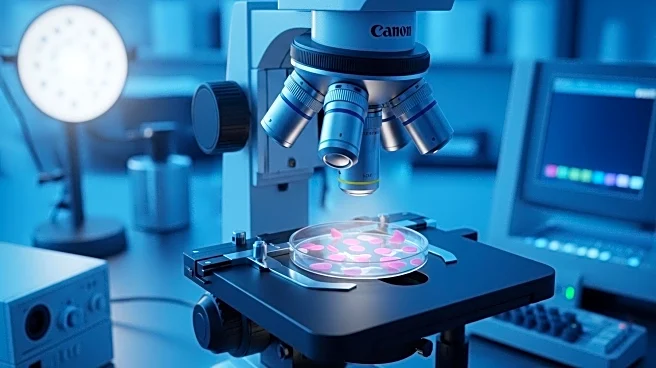What's Happening?
Ncardia has announced the launch of Ncyte® NHP-C vCardiomyocytes, the first commercially available ventricular-like cardiomyocytes derived from induced pluripotent stem cells (iPSCs) of cynomolgus monkeys. This innovation provides a scalable and ethical tool for cross-species cardiac studies, addressing the need for physiologically relevant non-human primate models in preclinical research. The new cardiomyocytes mimic human cardiac electrophysiology and pharmacology, offering a high-purity alternative for predictive safety screening. This development aligns with the FDA's guidance on reducing live animal testing, supporting pharmaceutical and biotech companies in advancing safer therapies.
Why It's Important?
The launch of Ncyte® NHP-C vCardiomyocytes represents a significant advancement in cardiac safety research, offering a more ethical and scalable alternative to live animal testing. This innovation supports the pharmaceutical industry in improving predictive modeling of cardiotoxicity, potentially reducing risks in drug development. By providing a tool that closely mimics human cardiac function, Ncardia enables more accurate cross-species comparisons, which can lead to safer and more effective therapies. The development reflects a growing trend towards ethical research practices and compliance with evolving regulatory expectations.
What's Next?
Ncardia's new product is expected to set a new standard for translational cardiovascular research, with potential applications in drug discovery and safety assessment. Researchers and companies may increasingly adopt these iPSC-derived cardiomyocytes for preclinical studies, enhancing the accuracy and ethical standards of cardiac safety testing. As the industry moves towards reducing reliance on live animal models, Ncardia's innovation could drive further advancements in stem cell technology and its integration into drug development processes.
Beyond the Headlines
The launch of Ncyte® NHP-C vCardiomyocytes highlights the ethical considerations in scientific research, particularly in reducing animal testing. It also underscores the role of stem cell technology in transforming drug discovery and development, offering new possibilities for creating safer therapies. This development may influence regulatory policies and industry practices, promoting more humane and scientifically advanced approaches to preclinical research.










